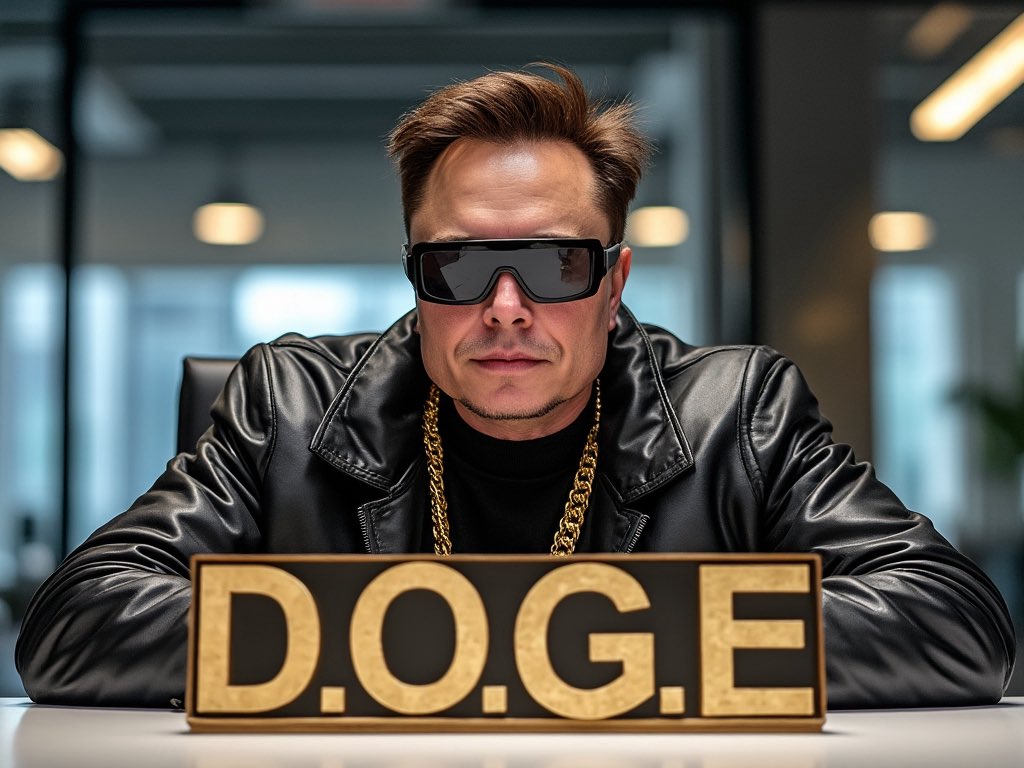Trump's "Manhattan Project": Musk to head department to fight red tape DOGE, aims to cut federal budget by $2 trillion
Donald Trump, the US president-elect, has appointed Elon Musk to head the newly created Department of Government Efficiency (DOGE), which aims to "dismantle" bureaucracy. Musk, known as the founder of SpaceX and Tesla, along with biotech investor Vivek Ramaswamy, plans to "dismantle" bureaucratic structures by eliminating duplication of functions among numerous federal agencies. The name of the department, according to analysts, symbolically refers to Musk's favourite cryptocurrency, Dogecoin.
According to Trump, Musk and Ramaswamy will help the White House "embark on sweeping structural reforms," including cutting unnecessary regulations and costs. According to the plan, they will advise the White House and the Office of Management and Budget to combat "massive waste and fraud" in government spending, which amounts to about $6.5 trillion a year.
Musk as an "effective manager"
Elon Musk's effectiveness as a manager is often discussed in the context of his tough and sometimes even ruthless management style. Musk is known for his ability to cut costs, speed up processes and introduce innovative solutions to increase productivity. He practices a kind of "effective maximalism" - focusing on results rather than processes, which allows him to achieve significant success, but often leads to high pressure on teams.
Here are a few examples of how Musk has improved performance at SpaceX and Tesla:
- Rigorouscost optimisation: At SpaceX, Musk has established impressive efficiency in rocket production and launch, achieving significant reductions in launch costs compared to traditional aerospace companies. For example, SpaceX built its own Merlin rocket engines, reducing the cost of producing each engine from tens of millions of dollars to less than a million. In 2020, it laid off a third of the employees at Tesla's Fremont factory and redesigned production processes, cutting costs and increasing productivity.
- Integration: Musk organised the production of batteries for Tesla in partnership with Panasonic, and then built the Gigafactory to further reduce costs. At SpaceX, he switched to manufacturing rocket components in-house, avoiding dependence on expensive suppliers.
- Culture of high demands: Musk sets very strict deadlines and puts high demands on the team, demanding maximum performance. At SpaceX, this has led to the launch of the Falcon 9 ahead of schedule, and at Tesla, to the mass production of the Model 3. This helps to reduce time and resource costs, but also leads to frequent complaints about staff overload.
- Implementation of innovations: At SpaceX, Musk has placed great emphasis on the creation of reusable rockets, such as the Falcon 9, which has significantly reduced the cost of launching each new rocket. The company was the first to return and reuse the first stage of the rocket, reducing the cost of launches by tens of millions of dollars.
- Direct involvement in projects: Musk is known for being personally involved in the development of even the smallest details, which helps to solve problems faster and eliminate unnecessary steps. For example, he was involved in the engineering solutions for the Tesla Model S, as well as in solving technical problems related to the SpaceX launch.
What does Musk offer
Although the DOGE department does not yet have an official status, its mission is widely resonating: Musk, a major donor to Trump's campaign, is calling for a 2 trillion-dollar reduction in the government budget, proposing to eliminate hundreds of federal agencies (from 428 to 99) that he believes are duplicative. Trump compared the DOGE initiative to the Manhattan Project, a secret programme that developed the first nuclear weapons during World War II. Musk, reacting to the appointment, wrote on social media that it would be "a threat to bureaucracy, not democracy".
Source: BBC
